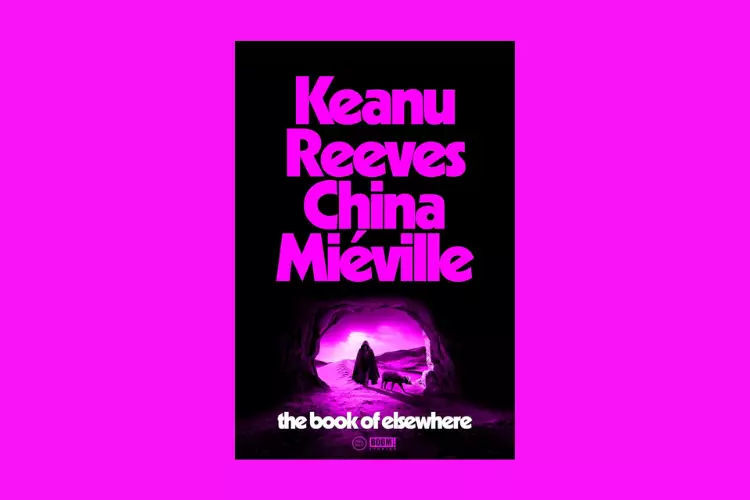In the realm of contemporary literature, few collaborations provoke curiosity quite like that of Keanu Reeves and China Miéville’s **The Book of Elsewhere**. This novel serves as an exploration of themes often relegated to the peripheries of mainstream storytelling—immortality, warfare, and existential crises. At its core, the narrative weaves a rich tapestry devoid of genre boundaries, fusing elements of sci-fi, philosophical inquiry, and military thriller into a cohesive whole that beckons readers into its peculiar world.
Central to the tale is Unute, who colloquially goes by ‘B’. His identity as an 80,000-year-old warrior creates a fascinating lens through which the themes of mortality and the human condition unfold. Despite his remarkable longevity and omniscience regarding historical events, B finds himself tormented by an unresolved yearning for death—an assertion that life is imbued with meaning only against the backdrop of its inevitable end. This paradox serves as a metaphorical anchor, posing compelling questions about the essence of existence.
Through B, the narrative delves into philosophical explorations that challenge conventional notions of heroism. He cannot easily be labeled a noble figure or a villain. Instead, he embodies complexities that reflect real human emotions—a feature that bears the hallmarks of Miéville’s styling. However, the richness of B’s character can sometimes be overshadowed by the intricate prose and convoluted narrative structure, which may deter readers more accustomed to linear storytelling.
One of **The Book of Elsewhere’s** most commendable features is its extensive world-building. The authors create multidimensional environments and civilizations, bringing both ancient and modern complexities into view. However, the non-linear narrative can leave readers feeling disoriented, as it often feels fragmented rather than fluid. Indeed, the unconventional structure can come across as overwhelming, layered with complex subplots that demand careful navigation.
While Miéville’s esoteric style can evoke a sense of wonder, it sometimes verges on overwrought. Some passages may appear to serve aesthetic purposes over narrative clarity, leading to potential reader fatigue. Yet, when one peers beyond the dense layers of text, glimpses of profound ideas and evocative imagery reveal themselves, presenting a unique opportunity for reflection.
A central motif within the narrative is B’s existential quandary—the desire to embrace mortality. This thematic underpinning poses poignant questions about life’s meaning: Can one truly appreciate life without understanding the finality of death? The story compels readers to reflect on their beliefs surrounding existence and the natural cycles of life and death. It traverses themes that resonate beyond the literary realm, inviting philosophical reflection on the narrative’s implications.
In stark contrast to the protagonist’s tragic yearning, the narrative often introduces fringe surrealistic elements. The presence of quirky characters, such as an immortal pig, not only adds to the narrative’s eccentricity but also poses a disruption in the conventional storytelling cadence. The boldness with which the authors express their creative vision demonstrates a willingness to traverse uncharted territories in literature.
Among the most powerful narrative devices within **The Book of Elsewhere** are the flashbacks that peer into B’s centuries of existence. These moments allow for a richer understanding of his character, establishing a groundwork for empathy and connection. Through vivid imagery and intricate details of B’s past encounters, readers gain insight into the emotional weight he carries—a burden made heavier by a history steeped in loss and isolation.
Nevertheless, the oscillation between timelines can feel jarring, disrupting the reader’s immersion in the present narrative. This innovative approach to storytelling, while artistically ambitious, may alienate readers who seek a more traditional progression.
Ultimately, **The Book of Elsewhere** stands as an audacious testament to the possibilities within genre fiction. The collaboration between Reeves and Miéville has birthed an artistic vision that is both compelling and challenging. Its existential motifs, intricate prose, and eccentric narrative structure compel readers to question the boundaries of literary form and function. While the dense layering may not appeal to every reader, those brave enough to embark on this journey will find themselves immersed in a world that redefines the essence of storytelling. This novel is an invitation to embrace weird fiction, diving into the depths of existence, identity, and the incomprehensible nature of life itself.

